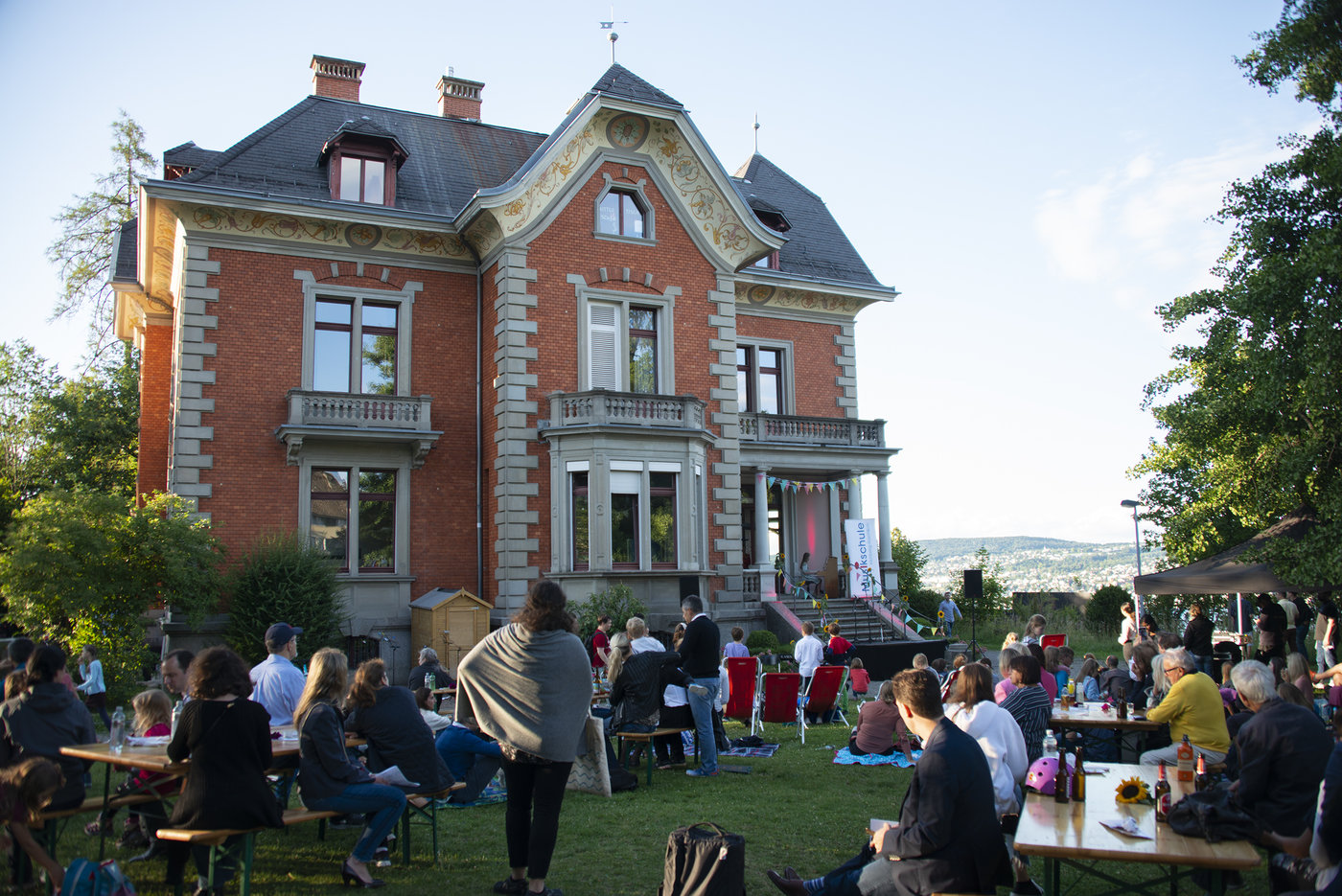The music school as a network builder
Gabriel Stampfli completed the MAS "Music Administration" course at HEAB in 2022, at the same time gaining his ASEM school director's diploma. In his master's thesis entitled "Wir lehren und leben Musik und finden gemeinsam den richtigen Ton", he documents the development process of the music school in Kilchberg-Rüschlikon (ZH), which he has been leading since the 2019/2020 school year.
After years of touring and working in music schools in various cantons, Gabriel Stampfli decided to undertake his own continuing education. Increasingly interested in the organization of a music school, he wanted to acquire the necessary tools by following the training course at the Bern University of the Arts. "Since completing my training, I've basically been doing the same thing as before - but I'm now concentrating my activity within a two-and-a-half-kilometer radius, rather than on projects in Berlin, Sao Paulo or Zurich," he notes with a smile. During the interview, we discuss three aspects of his master's work.
The music school networks communes...
More and more music schools are joining forces and extending their activities across several communities. "We can truly create a harmonious network between communities," writes Gabriel Stampfli - whether through public concerts by students or members of the teaching staff, or other supra-communal joint events. In this way, the educational mission is complemented by a cultural one: people from both communities meet up at concerts and get to know each other in an informal setting.
... and generations
The same applies to intergenerational encounters, supported by the regular organization of concerts in homes for the elderly. Here too, Gabriel Stampfli sees the music school as having a cultural mission. The fact that students play not only classical and traditional music, but also contemporary music, broadens the horizons of both performers and audiences. "Music can be perceived as a gift, through the widest possible range of styles, periods and instruments," he notes.
Networking with compulsory school teachers
Gabriel Stampfli describes the collaboration between music teachers and compulsory schoolteachers in the context of team teaching of music at school (in accordance with the German-language Lehrplan 21) as marked by a great deal of - sometimes even too much - respect. Music teachers have a great deal of respect for classroom management, and teachers have a great deal of respect for the musical-pedagogical skills of their colleagues. That's why we're planning an in-service training course to get to know each other. This will also include some joint musical practice, which should enable them to overcome their reservations.
Ready for the 50e birthday
The Kilchberg-Rüschlikon music school's development process will continue over the next few years. The new membership contract and the newly-negotiated salary agreement for music teachers were an important step forward. As a result, the music school - whose birthday just happens to coincide with that of its director Gabriel Stampfli - now has a solid basis on which to prepare for its 50th anniversary.e anniversary in 2027.
 Photo: DR
Photo: DR






